I spent years wondering why the supposedly-awesome coconut oil for skin wasn’t cutting it for the dry skin on my face. It was SO frustrating! This discovery totally rocked my world, and I’m still using it daily, 5+ years later.
Huge thanks to Wilder Supply Co. who asked me to try some of their skin care products and originally sponsored this post. (All sponsored partnerships on this site are 100% my own thoughts, and I only publish work for products/companies I’ve personally tried and love.)
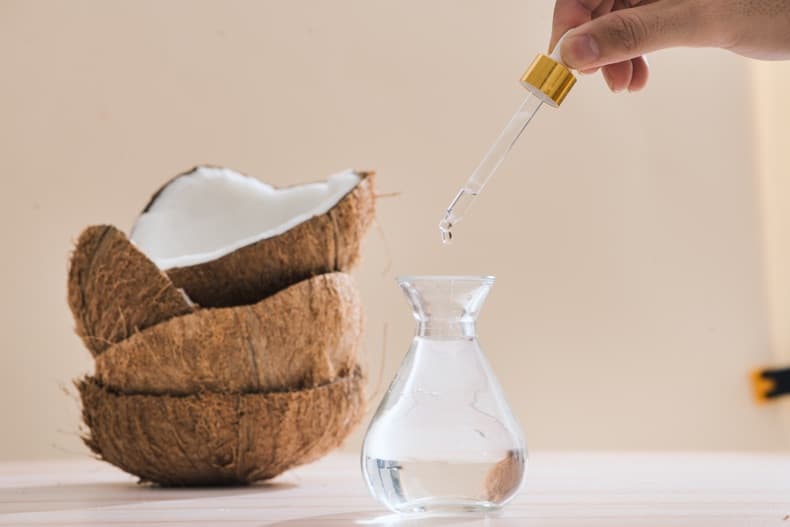
Written by: Beth Ricci
Every winter without fail, I get terribly dry skin on my face. The day after the we turn on the furnace for the first time in the fall, it starts. My face – especially in my T-zone – gets itchy, dry, and flaky. After my shower, it feels tight and awful, like that feeling you get when wearing a face mask that has dried and is ready to wash off. I do not appreciate this facet of my undeniably otherwise-flawless beauty. 😉 Not cool, face, not cool at all.
So what’s a natural living, crunchy mama to do?
[Enter, stage left, hero character]
Does Coconut Oil for Skin Actually Work?
Coconut oil is the darling of the natural living crunchy community. Every real food blogger worth their (unrefined sea) salt will tell you that there are literally hundreds of ways to use the stuff, from making delicious baked goods, homemade toothpaste, or eye makeup remover, to lubricating your you-know-what and using it as a massage oil in the bedroom.
Ever seen My Big Fat Greek Wedding? Remember how Windex is the cure-all? Same idea, less hilarious and more natural.
It’s commonly claimed that using coconut oil for skin is the Awesomest! Moisturizer! Ever! too. For years I kept some in a little sealed container in my bathroom, carried it in my purse, and even packed it for trips, just so I could swipe a little out with my finger to help moisturize my dry skin. It worked… sorta, but not great. I also tried jojoba oil for a while (holy expensive, batman). It was better, but still not awesome.
The Ideal Moisturizer for Your Skin, According to Research
According to this recent study on moisturizing products for dry skin, the ideal moisturizer will have the following attributes:
Reduce and prevent further TEWL (trans-epidermal water loss)
Restore lipid barrier, i.e., duplicating and enhancing the skin’s moisturizing retention mechanisms
Hypoallergenic, non-sensitizing, fragrance free, non-comedogenic
Absorbed immediately, providing immediate hydration
Cosmetically acceptable
Affordable.
How I First Learned About Coconut Oil Alternatives
My life was forever changed when an email landed in my inbox from Hannah at Wilder Supply Co. (Update September 2016: Wilder was formerly called Taproot Farms. Same great company, different name.)
(Seriously though – if any face moisturizer could be called life-changing, it’s this one.)
Wilder Supply Co. is a family-owned business located on an off-grid homestead in Chickaloon, Alaska. They offer a variety of products including lip balm, face/body oils, shea butter, perfume, and goat milk soap (made from fresh goat milk from the family homestead).
[annnd… now cue the dramatic music]
She wanted me to review some skin care products from their shop. I was all like, OK, sure, sounds fun. I was tired of using coconut oil for skin and being disappointed. Little did I know that my face moisturizing routine as I knew it was about to be forever changed.
I tried a few different products: a peach lip balm which works beautifully, and a sandalwood goat milk handcrafted soap – smells incredible, feels totally luxurious in the shower. I LOVE the silky smooth feel of it.

Then… I tried the Moroccan Argan Oil.
Backstory: when Hannah asked me what I’d like to try from their shop, I mentioned that the argan oil looked interesting (I had never heard of it before) because I had suffered from dry, itchy skin on my face for so long, and my current coconut oil for skin routine was not really cutting it.
This was followed by a discussion of the various oils and some brilliant explanations from her which pretty much explained everything as to why the other oils hadn’t worked for me. Here’s what I learned from her, and from my own rabbit hole of research that blew my mind:
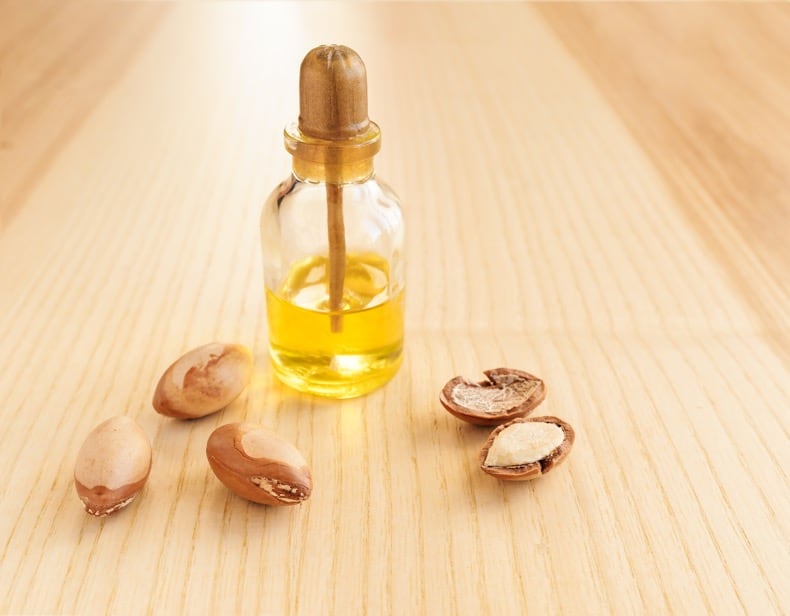
What Does the Scientific Research Show About Argan Oil and Coconut Oil?
Well, first of all – the body of research on plant oils for therapeutic skin purposes is fairly small. Unfortunately, the laws in the United States on what skincare and cosmetic companies are allowed to include in their products are extremely loose. The U.S. only bans 11 ingredients, which is in stark contrast to the 1,328 chemicals banned by law in the European Union (28 countries). Canada’s laws are similarly strict to the E.U. with hundreds of ingredients banned.
According to the Campaign for Safe Cosmetics, the E.U. also requires safety assessments on all products prior to being sold, whereas the U.S. does not. They point out that “the hazard-based, precautionary approach of the E.U. acknowledges that chemicals linked to cancer and birth defects simply don’t belong in cosmetics – regardless of the concentration of the chemical being used.”
What does this all mean? It means that the biggest cosmetic brands (the ones who could afford to fund studies) have little need to do so, and wouldn’t want to anyway, because the results on their products wouldn’t be good.
Here’s What we DO Know, Based on What’s Available:
- According to this 2013 study on jojoba in dermatology, jojoba oil isn’t actually an oil. It’s a wax ester that is very similar to the skin’s natural sebum. So, while it feels really nice on the skin (and worked better than coconut oil for me), it can’t soak in to the layers of the epidermis and moisturize as effectively as an oil like argan.
- Coconut oil for skin is a very light moisturizer that sinks in quickly, which appeals to a lot of people because it doesn’t leave a greasy feeling on the skin. It works well for some, but not those with very dry skin. This 2019 study found that coconut oil was effective as an emollient (softening skin) but that it was not found to leave an effective barrier to seal in moisture (aka “occlusive” – for the “most occlusive” example, think of petroleum jelly leaving a thick layer on skin). Dry skin needs something more occlusive than coconut oil, but less so than petroleum jelly (not a product I recommend, for the record).
- According to Table 1 in this study, coconut oil is not considered an effective occlusive (protective barrier), emollient (softens rough skin), or humectant (draws moisture). That same study points out that it does have excellent anti-bacterial and anti-fungal properties, so if you don’t have very dry skin or acne-prone skin (see comedogenic note below), it may be a great choice for you. (It’s also worth noting that other studies do refer to occlusive and emollient effects of coconut oil, and I’m sure there’s truth to that, however other plant-based oils seem to be referenced as more effective in this regard.)
- According to this comedogenic chart, argan oil is non-comedogenic with a rating of 0, so it won’t clog your pores.
- Conversely, coconut oil is listed with a rating of 4 (which means it can easily clog pores). That doesn’t bother many people, but if you have a tendency to get clogged pores (blackheads, acne breakouts, etc), coconut oil may exacerbate that problem.
- It is worth noting that the concept of comedogenicity requires more research before we can draw too many conclusions. Still – anecdotally, many people report that coconut oil just doesn’t leave their skin feeling hydrated (like me), or it leads to acne breakouts (hence the comedogenicity discussion).
- To sum up my own experience – while jojoba oil provided a protective layer without sinking in well, and coconut oil sinks in but doesn’t leave much of a protective layer, argan oil does both (see research below), making it more effective overall.
- In this 2014 study involving 60 women, the researchers concluded that argan oil improved skin hydration by restoring barrier function (keeping irritants, microbes, and allergens out) AND maintaining the water-holding capability (keeping moisture in).
- A follow-up study in 2015 by the some of the same researchers concluded that argan oil has an effective anti-aging effect by significantly improving skin elasticity.
So while coconut oil might work well for people who have skin in the middle of the spectrum (generally non-problematic skin), it doesn’t usually work great for those of us who tend to have dry or oily skin issues.
 My Personal Experience with Argan Oil
My Personal Experience with Argan Oil
As soon as I got the package in the mail, I started using the argan oil every morning, especially after a shower (I don’t shower every day – it helps to avoid drying the skin too much)
I dab a few drops on my driest areas (right between my eyebrows, forehead, around the base of my nose) and massage it in. It literally only takes a few drops, and my skin drinks it up thirstily.
It is especially effective if I give my face a quick, gentle exfoliation first. In the shower, I just gently scrub my face with a washcloth and it works great. I don’t feel a need to buy special products, or to be particularly harsh with scrubbing. It’s also most effective when applied to damp skin because your pores are more open.
Since using the argan oil, I have noticed an absolute 100% improvement in the way the skin on my face feels on a daily basis. That tight, dry feeling is gone!
As far as I can tell, the results are long-lasting too, because on the days I don’t shower, I sometimes don’t even use the oil because my skin is still happily moisturized from the day before.
It’s incredibly effective (this is about as close to defining something as a miracle product as I’ve ever gotten) and it’s frugal too, considering how little of it you need at a time. At the risk of overstating my case, to be honest, I am utterly blown away and thrilled with this product. Truly.
Now, not only does it work well and not cost me an arm and a leg (side note: yes, the price seems high at first glance compared to drugstore junk, but my first bottle lasted me almost four years!!), but consider these amazing factors as well:
Interesting Facts About the Origins and Production of Argan Oil:
- Argan oil is one of the rarest, most highly-valued oils in the world (source). It is a plant-based oil that comes from the Argan tree, which is exclusive to Morocco. It is called the “tree of life” there, and it has been used by locals for centuries.
- Every part of the plant is utilized: “Getting oil from the fruit of the argan tree involves drying it, extracting the nuts, cracking them to reveal the kernels, and pressing them to release the oil. The byproduct of pressing is a thick argan paste, which is sold locally for cosmetic products. Nothing else is wasted, as the outer pulp provides food for village animals, while the shells are burned for fuel.” (source)
- The process of extraction and selling this oil is done in a sustainable fashion. Almost all Argan oil is distributed by local co-operatives of women in Morocco (source). To this day, the most efficient method of extraction is hand-pressing the kernels, which provides valuable jobs to women in the country.
What are the Health Benefits of Argan Oil?
- Argan oil has incredible health benefits. According to this study, it’s rich in fatty acids and Vitamin E, which are both traits held in high regard in the beauty industry. The industry often adds synthetic versions of these things to products to be able to market them as anti-aging and healing, but of course, the natural (non-synthetic) version is far superior.
- According to the same study, “daily topical application of argan oil has also been shown to improve skin elasticity and skin hydration by restoring the barrier function and maintaining the water-holding capacity. Additionally, topical applications onto skin provide a softening and relaxing effect on the skin.”
- This study discusses multiple amazing health benefits of argan oil beyond skin moisturizing, including UV protection, and even cancer prevention (yes, really!)
The Bottom Line?
I first wrote this post in 2013, and it has been viewed nearly four million times since. There has been some pushback to criticism of our beloved coconut oil (of which I’m still a huge fan – I use it all the time for cooking, and a few other things!) but overall, I have heard from a ton of others who were relieved to know that they weren’t the only ones struggling with coconut oil for skin as a moisturizer!
I still use and love my argan oil to this day – I get mine from the same company: Wilder Supply Co. (<– get a special R&H discount through that link). I trust their quality.
They’re a small family business that prides itself on offering natural, affordable products of exceptional quality. They also value sustainability and top-notch service, which pretty well makes them my ideal company.
Related:
What do you use to moisturize your skin? Have you tried argan oil?
Sources:
- Sethi, A., Kaur, T., Malhotra, S. K., & Gambhir, M. L. (2016). Moisturizers: The Slippery Road. Indian journal of dermatology, 61(3), 279–287. doi:10.4103/0019-5154.182427
- Pazyar N, Yaghoobi R, Ghassemi M.R, Kazerouni A, Rafeie E, Jamshydian N. (2013). “Jojoba in Dermatology: A Succinct Review”. G Ital Dermatol Venereol , 9(1): 5–14. doi: 10.1016/j.jtcme.2017.06.012
- Varma, S. R., Sivaprakasam, T. O., Arumugam, I., Dilip, N., Raghuraman, M., Pavan, K. B., Paramesh, R. (2018). In vitro anti-inflammatory and skin protective properties of Virgin coconut oil. Journal of traditional and complementary medicine, 9(1), 5–14. doi:10.1016/j.jtcme.2017.06.012
- Chularojanamontri, L., Tuchinda, P., Kulthanan, K., & Pongparit, K. (2014). Moisturizers for Acne: What are their Constituents?. The Journal of clinical and aesthetic dermatology, 7(5), 36–44.
- Draelos Z.D, DiNardo J.C. (2006). A Re-Evaluation of the Comedogenicity Concept. Journal of the American Academy of Dermatology 54(3):507-12. doi: 10.1016/j.jaad.2005.11.1058
- Boucetta, K.Q, Charrouf, Z, Derouiche, A, Rahali, Y, and Bensouda, Y. (2014). Skin Hydration in Postmenopausal Women: Argan Oil Benefit with Oral and/or Topical Use. Menopause Review 13(5): 280–288. doi: 10.5114/pm.2014.46470
- Boucetta, K.Q, Charrouf, Z, Aguenaou, H, Derouiche, A, and Bensouda Y. (2015). The Effect of Dietary and/or Cosmetic Argan Oil on Postmenopausal Skin Elasticity. Clinical Interventions in Aging 10:339-49. doi: 10.2147/CIA.S71684
- Lin, T. K., Zhong, L., & Santiago, J. L. (2017). Anti-Inflammatory and Skin Barrier Repair Effects of Topical Application of Some Plant Oils. International journal of molecular sciences, 19(1), 70. doi:10.3390/ijms19010070
- Villareal, M. O., Kume, S., Bourhim, T., Bakhtaoui, F. Z., Kashiwagi, K., Han, J., … Isoda, H. (2013). Activation of MITF by Argan Oil Leads to the Inhibition of the Tyrosinase and Dopachrome Tautomerase Expressions in B16 Murine Melanoma Cells. Evidence-based complementary and alternative medicine : eCAM, 2013, 340107. doi:10.1155/2013/340107

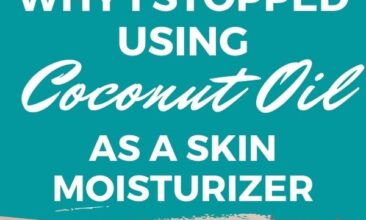

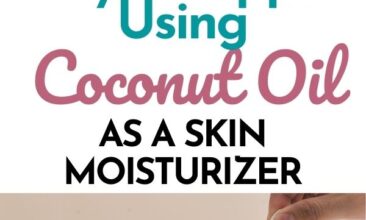
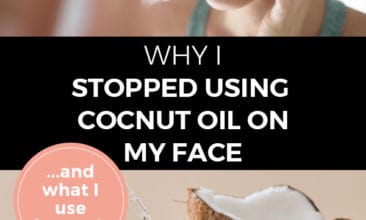
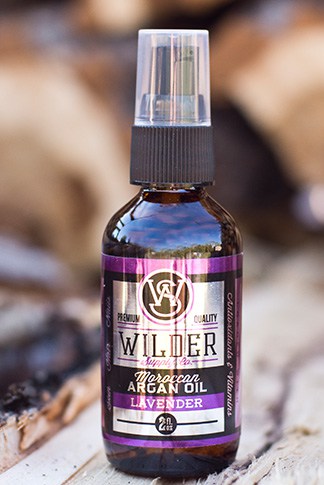 My Personal Experience with Argan Oil
My Personal Experience with Argan Oil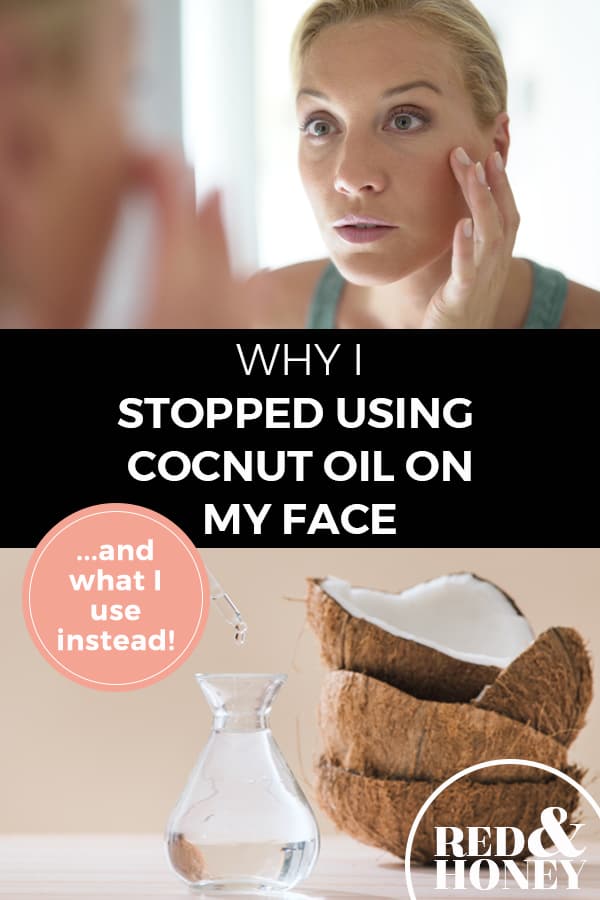






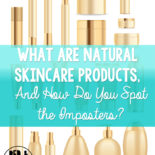
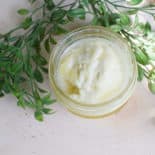



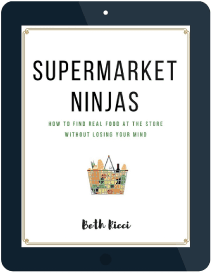
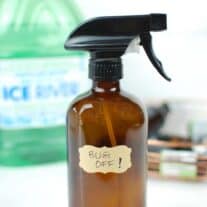


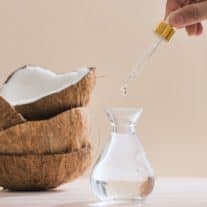



Hannah Wheeler
Please send me the info! I’ve tried so many things to cure the terrible eczema on my face! [email protected]
Jessica
This skin butter would do the trick! It is 100% organic and non comedogenic and uses only raw avocado butter, raw mango butter and cold pressed moroccan argan oil. http://www.beechersbotanicals.com/#!product-page/cyb8/3c4e6210-9377-021c-b89a-6ec0494991d6
Jessica
http://www.beechersbotanicals.com/#!our-products/kmt72/!/NAKED-Organic-Skin-Butter/p/56854325/category=15385027
Terri
Where can I purchase Arian oil?
Beth
I get my argan oil from Taproot Farms Co. Links in the post! 🙂
Amanda
I used coconut oil as my main moisturizer and cleanser for over a year on my oily/combination skin. It worked great, but you’re right Beth–it’s not perfect. Then I discovered Beautycounter. Their face line is coconut oil based and they have three separate face oils that work just like your Argan Oil! They also have a body line (shampoo, lotion, body wash, sunscreen) and makeup (something I definitely couldn’t DIY safely even if I tried!). The best part is that all ingredients are tested and retested for any toxicity before they even come near their products. And the kicker: this week they’re on Capitol Hill lobbying for stricter regulation for the beauty industry. If there are any beauty products or cosmetics you’re still trying to find that work and are safe, I’d love to talk with you more!
Beth
I’ve heard good things about BeautyCounter stuff. A few friends really enjoy it. Glad to hear that they’re campaigning for stricter regulations – that’s SO needed!
Katie
Based on Jessica’s review, I tried the Beecher’s Botanicals skin butter and LOVE IT!!! It really makes your skin velvety soft! And now they just came out with an organic skin serum! It contains organic rosehip seed oil, organic triple extra virgin argan oil, and organic essential oils. It is anti-aging, nourishing, fast absorbing and they say it provides a lit-from-within gorgeous youthful glow!! I’m ordering tonight. This is my new facorite company! http://www.beechersbotanicals.com/#!product-page/cyb8/fbd0407e-6f6b-33b8-a7b7-28dce4ac5525
Laura
Can we fo away with those little hearts
Jenna
Thanks for the great info! Looking forward to trying their products.
Jesse
Thanks so much for writing about this! I’ve been dealing with dry patches on the apples of my cheeks lately and haven’t been able to find the right moisturizer to combat it. I definitely want to look into the argan oil now and see how my skin does with it.
Beth
I hope it works as well for you as it does for me! 🙂
Nichola
This caught my attention because I too stopped using coconut oil as a moisturizer. I have oily skin it was def breaking me out and on my body kind of drying me out. I’m interested in checking out some the oils you mentioned, very intriguing. Right I’m using L”BRI PURE n’ NATURAL, an aloe based , pure of skincare, body care and cosmetics. > Love it, so amazing for my skin and dry skin types really seem to like it, too. Wondered if you had tried it?
I have free starter sets available on my website, just cover the s & for a 2-4 week supply… http//:www.nfiles.lbri.com, I’d love get your opinion! (I actually give a mascara to anyone who tries it and gives me feedback.
Andrew
I’ve tried every product out there and always went back to Organic Coconut Oil. I’ve tried every shea butter products on the market. While it’s okay for the face, it makes my face break out with hives and rashes. It doesn’t happened right away but after a few days, I start seeing it.
I didn’t think it was the shea butter at first, but nothing else changed and once I stopped using it, it slowly got better.
The best oil for my face is Organic Jojoba Oil. This oil is a miracle for the face. It doesn’t break me out and it doesn’t make my face oily like Coconut Oil. Jojoba also resembles our skin’s natural Sebum. It’s the closes match which is why it’s compatible with all skin type.
Also, using the wrong soap can trigger hives other skin related problem. Even some of the organic soaps out there. The best soap I’ve used so far that helps reduces hives and eczema is sandalwood Soap by Bee & Flower. It does dry my skin however so I use coconut oil right after. This seems to be the best combo so far.
I have tons of shea butter bottles that I can’t use because I think it causes rash. But it could be the new soap I got. (Dr. Bonners Magic Soap). Mainly the Hemp and Eucalyptus soap and the Kiss My Face Olive Oil soap. Those 2 soap break me out in hives and rashes like crazy.
For now, I’m going to stick with sandlewood soap and coconut based soaps.
Beth
I used jojoba before trying argan. I liked my argan a million times better.
Thanks for sharing your experience!
richa kapoor
Can I aaply Figaro oil on whole body as moisturizer ..? Can it also trigger body hair growth ?
Emma
I have tried many oils on my face and I think they did trigger hair growth :-(. I have found an inexpensive brand that seems like a decent “compromise” product. Reviva Labs, I order from vitacost. At 41 I am the “old lady” at work, when I started there this summer the twenty somethings thought I was their age. Obviously, I’m happy with my moisturizer.
Elise Miller
Great article!
Jessica
You would LOVE Beecher’s Botanicals’s SKIN BUTTER. It can be used on the face, body, hands, hair, nails – you name it! It contains no pore-clogging greasy coconut oil and no stinky shea butter. It has only three ingredients – Organic Cold Pressed Triple Extra Virgin ARGAN OIL, Raw Organic Avocado Butter and Raw Organic Mango Butter. There is a NAKED version that is unscented, or you can choose SKIN BUTTERs with different pure organic essential oils 🙂 I LOVE this stuff. My skin has NEVER been so velvety soft! It is anti-aging, anti-oxidant, healing, protecting and softening. You should definitely check it out! http://www.beechersbotanicals.com
Laura
Nix those hearts
CC
Hi everyone! Seems like there are alot of excema suffers here 🙁 I don’t have this problem but my mother does, always had and has tried many things to clear it up…and sunlight does seem to help a bit, but over UV exposure isn’t ideal ..
I just bought my mom a package of “redlight therapy” from a beauty salon.. a few months ago ..it is UV free but has cleared up her skin issues tremendously ! She goes about 2x week for 20 mins and finds it very relaxing. Great for anti-aging as well.
Just thought I would mention it for the adult suffers!
Love and Light, xo
Anna
Nicoleki
I have always used coconut oil as a cleaner, and not as a moisturizer. I generally put some on my face, and once a week steam my face over a bowl of green tea; the oil slides into the bowl, and dirt, oil, and dead skin with it. My grandmother has done this for years and her skin is amazing. Thanks for an awesome post!
Olivia
Hi could you explain a little more on how you do the facial steam with the green tea? It sounds really interesting I would love to try it!
Mina
Basically make green tea as you normally would. Instead of having it in a cup put it in a bowl and place your face over the bowl and cover your whole head with a towel. The steam will rise up and you’ll feel it on your face. The towel helps to keep the steam rising around your face instead of escaping. This also works if you are sick and congested, it will help clear your sinuses and loosen up congestion.
sue
I have a very dry skin so i mixed Coconut oil with Borage oil and it works great together, especially in winter time. I never spend money on lotions since it’s too expenses and doesn’t last long like this two oil.
Sara
I use extra virgin olive oil mostly for my body, sometimes face. I also use a cream with oats for my face ( I struggle with exzema in my face) and it helps wonders. The brand is called A-derma exomega. Also I use a tad bit of coconut oil in my hair. I want to say that, exzema may be a yeast issue and an overgrowth of candida. If you think you have candida, theres many sites on internet that can help you to find ways to manage it.. Probiotics might help, amogst other ways.
Jenny
I used argan oil once because my sister just purchased a bottle. But it dried my skin and made it itchi. I was upset because I was so excited before. Argan oil sounds so exotic. Well different oil works differently for different people I guess. I went back using my reliable coconut oil.
shean massey
@Beth Hi, I love the way you work! I’m a software developer / data scientist and I once worked 3 years for one of the giant online marketers. During that time I had never seen anything quite like this. I find your approach just awesome. The “Why I stopped using X” has a ton of potential, and I see so many of parallels.
Would you mind sharing your conversion numbers/stats (for this particular article would be great)? I have no plans to ever play in health or beauty markets. I’d like to use any figures you could share as a benchmark against an “IT Service Provider” parallel who’s using a similar method. I will share all of my findings in exchange for your participation.
If you would like to keep your numbers private, I could understand, but please let me know in either case!
Many thanks in advance.
Dr. Dumatsz
Be careful with argan oil, some people have extreme allergic reactions to it. I personally get bad burns on my skin from argan oil, as I am allergic to the argan nut (discovered after using the oil).
Linda
Everyone curious about coconut oil should read this informative, balanced article about its risks and benefits.
http://oilypedia.com/true-or-false-does-coconut-oil-clog-pores/
Imogen
Hello!
Great post, really nice to just see a simple explanation of why these oils are good/ad for skin. (shall be avoiding coconut oil soon for my blackheads!) I have been using witch hazel to clean my face for years and it worked wonders! But now that I am no longer a greasy teen I feel it is drying out my skin too much. I am keen to use the simplest routine on my skin and have been researching essential oils. Do you have any experience with rosehip seed oil, as I feel that is an incredibly popular one that hasn’t been mentioned here? Thank you 🙂